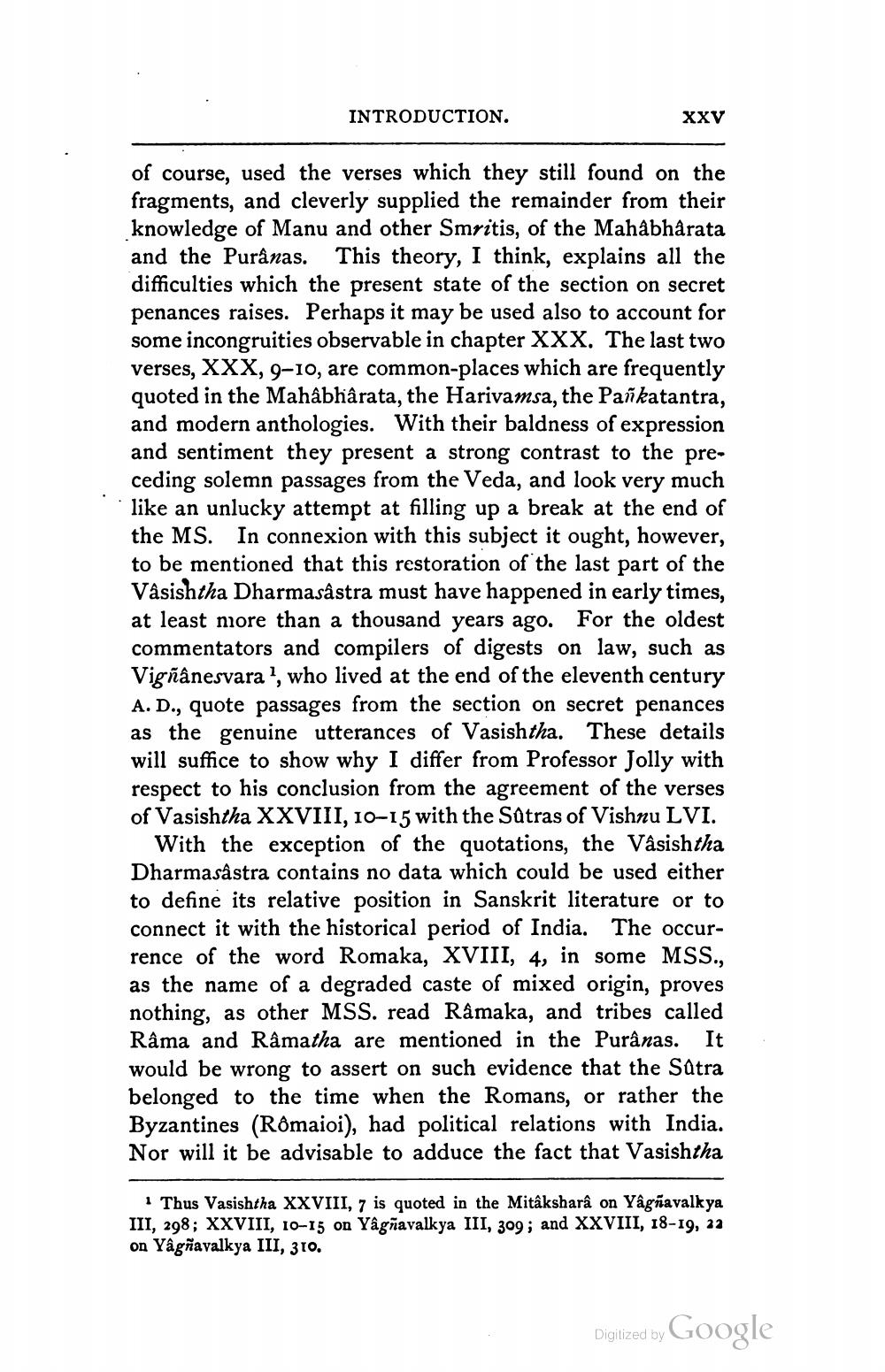________________
INTRODUCTION.
XXV
of course, used the verses which they still found on the fragments, and cleverly supplied the remainder from their knowledge of Manu and other Smritis, of the Mahâbhârata and the Puranas. This theory, I think, explains all the difficulties which the present state of the section on secret penances raises. Perhaps it may be used also to account for some incongruities observable in chapter XXX. The last two verses, XXX, 9-10, are common-places which are frequently quoted in the Mahâbhârata, the Harivamsa, the Pañkatantra, and modern anthologies. With their baldness of expression and sentiment they present a strong contrast to the preceding solemn passages from the Veda, and look very much like an unlucky attempt at filling up a break at the end of the MS. In connexion with this subject it ought, however, to be mentioned that this restoration of the last part of the Våsishtha Dharmasastra must have happened in early times, at least more than a thousand years ago. For the oldest commentators and compilers of digests on law, such as Vigñânesvara !, who lived at the end of the eleventh century A. D., quote passages from the section on secret penances as the genuine utterances of Vasishtha. These details will suffice to show why I differ from Professor Jolly with respect to his conclusion from the agreement of the verses of Vasishtha XXVIII, 10-15 with the Satras of Vishnu LVI.
With the exception of the quotations, the Vâsishtha Dharmasastra contains no data which could be used either to define its relative position in Sanskrit literature or to connect it with the historical period of India. The occurrence of the word Romaka, XVIII, 4, in some MSS., as the name of a degraded caste of mixed origin, proves nothing, as other MSS. read Râmaka, and tribes called Rama and Ramatha are mentioned in the Purânas. It would be wrong to assert on such evidence that the Satra belonged to the time when the Romans, or rather the Byzantines (Rômaioi), had political relations with India. Nor will it be advisable to adduce the fact that Vasishtha
1 Thus Vasishtha XXVIII, 7 is quoted in the Mitâksharâ on Yâgñavalkya III, 298; XXVIII, 10-15 on Yâgñavalkya III, 309; and XXVIII, 18-19, 22 on Yâgñavalkya III, 310.
Digitized by Google




